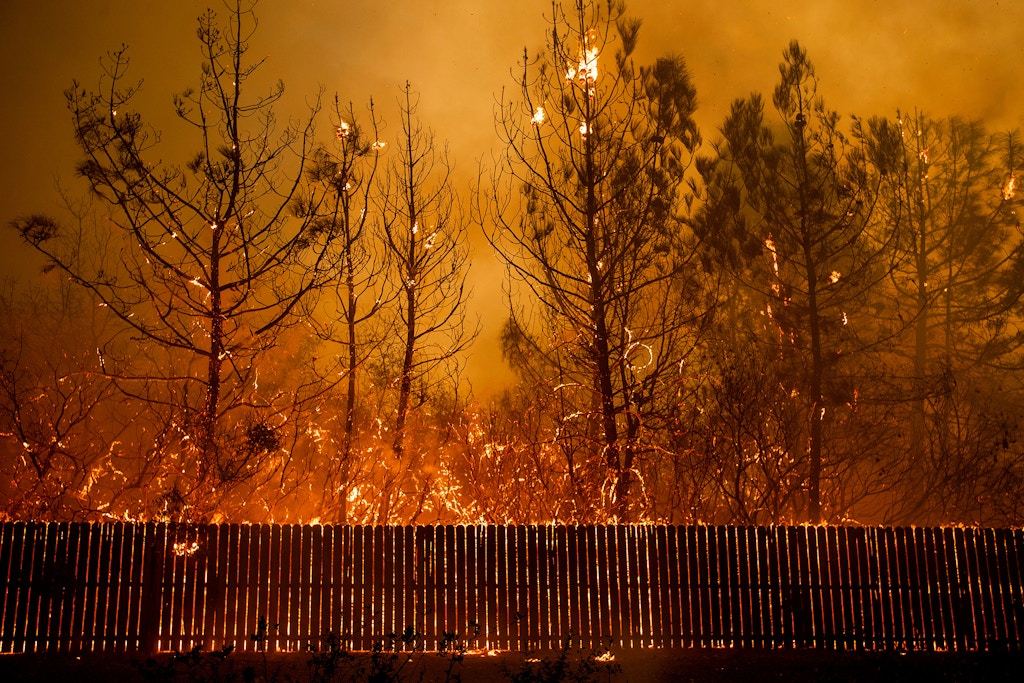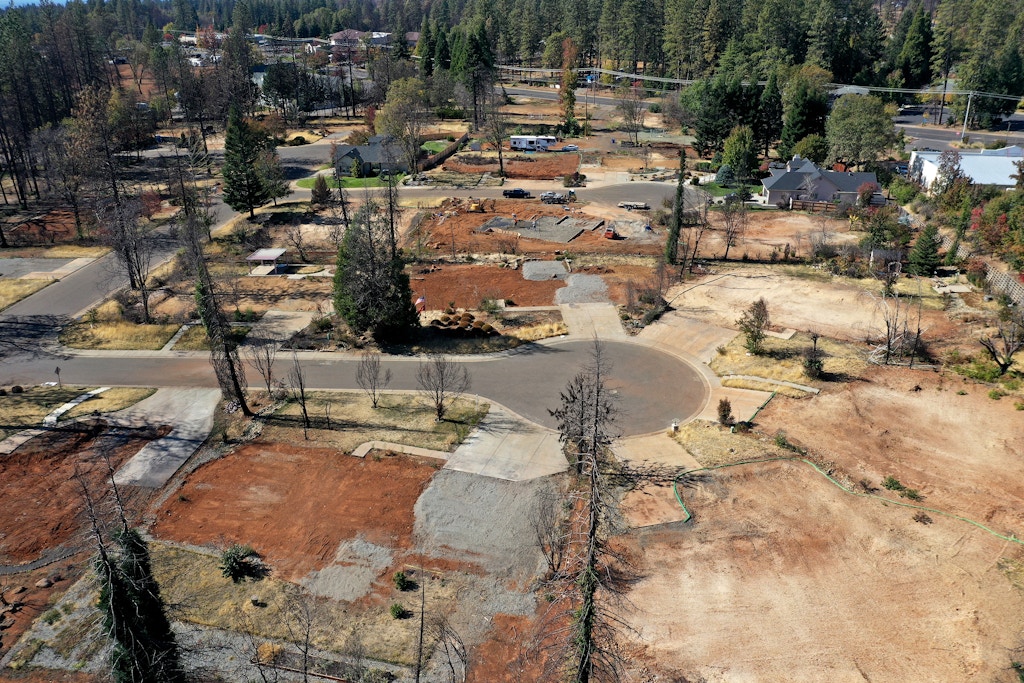Economic Update: Teaching Economics – A Revolutionary Approach: This week: Updates on Kshama Sawant’s reelection victory in the Seattle City Council race; the obesity problem's costs and causes in the U.S.; critiquing libertarian arguments in favor of capitalism;Prof. Wolff interviews Dr. Amy S. Cramer, a Professor of Economics at Pima Community College in Arizona about her accessible education project "Voices on the Economy."
Start at 16 min.
Friday, November 29, 2019
Thursday, November 28, 2019
Tuesday, November 26, 2019
Monday, November 25, 2019
Killing NAFTA Softly
Killing NAFTA Softly: Despite continual rumors that a deal on the update to the North American trade agreement is imminent, House Democrats and Trump are far apart.
Friday, November 22, 2019
Thursday, November 21, 2019
Los Angeles Has More Empty Houses Than Homeless People ?
same source
https://laist.com/2019/11/20/los-angeles-housing-vacancy-homeless.php
And, a 100,000 empty homes in the SF Bay Area, with large homeless population.
https://m.sfgate.com/realestate/article/An-estimated-100-000-homes-are-sitting-empty-in-13692007.php?
And, a 100,000 empty homes in the SF Bay Area, with large homeless population.
https://m.sfgate.com/realestate/article/An-estimated-100-000-homes-are-sitting-empty-in-13692007.php?
Tuesday, November 19, 2019
The Green New Deal: Lessons from Chico California
NAOMI _KLEIN

Forged in Fire: California’s Lessons for a Green New Deal
Naomi Klein
November 7 2019, 6:00 a.m.

Flames climb trees as the Camp Fire tears through Paradise, Calif., on Nov. 8, 2018.
Photo: Noah Berger/AP
WE WERE JUST TAKING PICTURES. Of the ash, stray bricks, and weeds. Of twisted metal and charred patio furniture. Of the pine trees still standing on the edge of the lots, their towering trunks now charcoal black. Of the lonely white brick fireplace in the middle of it all, the only surviving structure, metal pokers hanging expectantly by the grate.
“Get the hell off my property!”
The words came bellowing from a burly man who had just pulled up to the pile of ash that once was his home in Paradise, California. As he shouted a litany of complaints, it became clear that his rage wasn’t only reserved for us trespassers — and there have been plenty who have gone to Paradise to gaze at the eerie emptiness where a thriving community once stood, before it was decimated by California’s deadliest fire one year ago.
The target was myriad forces that had conspired to twist the knife, again and again, on his already wrenching property loss — from the insurance company that wouldn’t pay up, to the county that wouldn’t let him clean up, to the state that wanted his (now contaminated) well to be sealed up. His rage was also directed at the absence of decent temporary housing for fire victims like him, not to mention the electric utility that had started the blaze and was still evading responsibility.
When the complaints petered out, I approached the man to introduce myself and apologize for our intrusion. But as I got closer, I felt his volatility: I have been in many disaster-struck communities and know how quickly the gale-force of emotion these events churn up can direct itself at the closest available target. We wished him luck and left.
The encounter was a reminder of the kind of stress that is in the air in the parts of California recently scorched by fire, as well as in the communities that have welcomed thousands of newly homeless neighbors to towns now bursting at the seams. The intersecting hardships experienced by so many in the region also explain why, days before the one-year anniversary of the deadly Camp Fire that burned down Paradise and killed 86 people, local politicians in neighboring Chico unveiled a plan calling for the small city to adopt its own Green New Deal.
Like its national inspiration, the Chico Green New Deal framework marries rapid decarbonization targets with calls for more affordable housing; a safe and sustainable food system; investments in “clean, 21st century” public transit; green jobs creation, including projects earmarked for the poorest residents; and much more.
Chico shows that there is no way to cope with climate breakdown without a simultaneous shift to a very different kind of economy.
“Your city council has heard the call of its community that has resounded locally and across the nation,” saidChico Vice Mayor Alex Brown when the plan was announced. “We are choosing to walk the walk of this movement and to take the leadership being demanded of us.” In an interview, Brown told me that the Camp Fire’s impact on both Paradise and Chico was a glimpse of the future unless action is taken to both radically lower emissions and build “communities that are more resilient to these shifts.” Brown is well aware that a small city like hers isn’t going to make much of a dent in global emissions. But, she said, “We can demonstrate what a Green New Deal looks like at the local level.”
The Chico plan is one of many similar local initiatives that have sprung up in the year since the Sunrise Movement occupied the office of then-prospective House Speaker Nancy Pelosi, with young demonstrators demanding that the Democratic Party embrace a sweeping Green New Deal to meet the twin crises of climate disruption and deepening inequality. Since then, as the Green New Deal proposal has picked up momentum in the Democratic primaries, several states and big cities have unveiled their own frameworks, including Maine and Seattle, where city council recently passed a resolution that included the city’s most ambitious climate justice targets to date. It also pledged to create an oversight board to hold the city to its commitments, a body that will be made up of representatives from communities directly impacted by racial, economic, and environmental injustice, as well as climate experts and representatives from trade unions and green groups.
And yet the contribution now coming from humble Chico — a scrappy northern California college town with a population of approximately 100,000 — may be the most politically significant. Because the Chico Green New Deal is based directly on this region’s hard-won experience of living through the 2018 inferno; it was forged, quite literally, in fire.
Ever since the Green New Deal landed on the political map, liberals have attacked it for its supposedly impractical scope and ambition. Fighting poverty, racism, and homelessness are worthy goals, we have been told — but what do they have to do with lowering greenhouse gas emissions? Surely a carbon-centric approach — like a simple tax or cap-and-trade and some narrow regulations on polluters — would be more likely to succeed. And besides, connecting greenhouse-gas reductions with building a fairer society just confirms Republican beliefs that climate change is a vast left-wing plot: Better to focus exclusively on pollution and worry about the rest down the road. Conservative Chico city council members have gone on the offensive against the Green New Deal with precisely this kind of attack.

An aerial view of a destroyed neighborhood in Paradise, Calif., on Oct. 21, 2019, one year after the Camp Fire.
Photo: Justin Sullivan/Getty Images
Yet Chico’s lived experience over the past year is a devastating rebuke to this line of criticism. As the community that housed the vast majority of people displaced by the Camp Fire, Chico shows that there is no way to cope with climate breakdown without a simultaneous shift to a very different kind of economy, one that is willing to make major nonmarket investments in housing, transit, health (including mental health), water, electricity, and more.
Friday, November 15, 2019
Thursday, November 14, 2019
Friday, November 1, 2019
U.S. Heartland in a Recession - Again
What We Can Do
From Ken's Class
- A class member asked me last week “If you’re gone one week, can you find the films online to catch-up?” Yes, in most cases, see below.
- Week #1 “Inequality for All” w/ Robert Reich >
Amazon Prime > https://www.amazon.com/Inequality-All-Robert-Reich/dp/B00H3L4QOA/ref=sr_1_1?s=movies-tv&ie=UTF8&qid=1538346596&sr=1-1&keywords=inequality+for+all Rent $3.99 Buy $7.99
Google Play > https://play.google.com/store/movies/details/Inequality_For_All?id=2DQYNdrr-ns&hl=en Rent HD $3.99 Buy HD $7.99
- Week #2 “American Winter >
Amazon Prime > https://www.amazon.com/American-Winter-Liesl-Wendt/dp/B00TPZKA5Q/ref=sr_1_1?ie=UTF8&qid=1426102593&sr=8-1&keywords=american+winter Rent HD $4.99 Buy HD $10.99
- Week #3 “A Place at the Table” >
Amazon > https://www.amazon.com/gp/video/detail/B00BN4ZF98/ref=pd_cbs_318_4 Rent HD $3.99 Buy HD $12.99
- Week #4 “Heist: Who Sole the American Dream?” >
YouTube > https://www.youtube.com/watch?v=IcBuBgz6RAY ?
Distrify > http://www.heist-themovie.com/ Buy HD from $3.99
Netflix > https://dvd.netflix.com/Subscribe/Signup/Register?videoid=70251215&dsrc=DVDWEB_KEYART_MDP_RENTBTN Subscription
Ø Week #5 “Citizen U.S.A.”
Amazon > https://www.amazon.com/Citizen-USA-50-State-Roadtrip/dp/B0062RY30I/ref=sr_1_3?gclid=CjwKCAjw_uDsBRAMEiwAaFiHa2Yk4FEVyLBssSeF-HPeMEh0AVuzlaflB7JTtuJT_hfufpxiR9VCZRoCA_YQAvD_BwE&hvadid=233528788507&hvdev=c&hvlocphy=9032529&hvnetw=s&hvpos=1t1&hvqmt=b&hvrand=13050606563773686196&hvtargid=aud-647006051489%3Akwd-646015143&hydadcr=9330_10314398&keywords=citizen+usa&qid=1570296970&sr=8-3 Buy used from $5.00, Buy new from $16.33
Amazon Prime > https://www.amazon.com/Citizen-U-S-State-Road/dp/B01MRNWZ7D/ref=sr_1_1?gclid=CjwKCAjw_uDsBRAMEiwAaFiHa2Yk4FEVyLBssSeF-HPeMEh0AVuzlaflB7JTtuJT_hfufpxiR9VCZRoCA_YQAvD_BwE&hvadid=233528788507&hvdev=c&hvlocphy=9032529&hvnetw=s&hvpos=1t1&hvqmt=b&hvrand=13050606563773686196&hvtargid=aud-647006051489%3Akwd-646015143&hydadcr=9330_10314398&keywords=citizen+usa&qid=1570297050&sr=8-1 Rent HD $3.99, Buy HD $9.99
HBO > https://www.hbo.com/documentaries/citizen-usa-a-50-state-road-trip Subscription
Ø Week #6 Angela Glover Blackwell on the American Dream April 13, 2012 (45:26)http://billmoyers.com/segment/angela-glover-blackwell-on-the-american-dream/
Ø Week #7 “The House I Live In” >
+ Google Play https://play.google.com/store/movies/details/THE_HOUSE_I_LIVE_IN_FilmBuff?id=QsBDvxy5qQY&hl=en_US Rent 1.99, Buy HD $9.99
+ Microsoft Store https://www.microsoft.com/en-us/p/the-house-i-live-in/8d6kgwzl5g51?activetab=pivot%3aoverviewtab Rent $4.99, Buy $12.99
Capitalism as the problem.
- Five myths about capitalism - Maybe greed isn’t so good.
Myth No. 1 - Greed, natural human instinct, makes markets work.
Myth No. 2 – Corporations must be run to maximize value for shareholders.
Myth No. 3 – Workers’ pay is an objective measure of economic contribution.
Myth No. 4 – Equality of opportunity is all people need to climb the economic ladder.
Myth No. 5 – Making the economy fairer will make it smaller and less prosperous.
By Steven Pearlstein - Steven Pearlstein, a Washington Post economics columnist and the Robinson professor of public affairs at George Mason University, is the author of “Can American Capitalism Survive?” September 28, 2018
SOLUTIONS for Wall Street and Capitalism Abuses:
- Consumer Financial Protection Bureau > https://en.wikipedia.org/wiki/Consumer_Financial_Protection_Bureau
- What Should Be Done? Charles Ferguson - author of the Inside Job: The Financiers Who Pulled Off the Heist of the Century
Bring the financial sector under control:
- Reform, and tightly regulate, compensation structures at the individual, corporate, and industry levels.
- Break up the largest banks.
- Greatly strengthen the power and political independence of regulation and white-collar criminal law enforcement.
- Tax financial transactions.
- Tax financial sector income fairly.
- Close loopholes for activities such as “innovations” designed for tax avoidance or for betting against one’s own securities.
Natural result of proper re-regulation of the financial sector:
- Reduce its size, concentration & political power.
Many benefits:
- Increasing the supply of talented people for more productive activities.
- Reducing the pressures for political corruption.
Control the impact of money on politics:
- Lobbying and political contributions should be heavily taxed .
- Government and regulator salaries should be raised sharply, in return for strict prohibitions on revolving-door behavior.
- Some form of public campaign financing for political campaigns should be mandatory.
Reform the tax system:
- Both the individual and corporate, so as to raise revenues, increase fairness, and mitigate against the forms of hereditary and financial oligarchies.
- Extremely high estate taxes are one important element of this, as is the fair taxation of very high financial sector incomes.
Greatly strengthen antitrust policy and the regulation of corporate governance
- Antitrust policy and analysis have fallen victim to corruption in two ways:
- The corruption of U.S. government policy through campaign finance, lobbying, and revolving-door hiring.
- The corruption of the economics discipline that supplies the economic analysis, and the personnel, behind antitrust decisions.
Ø In the areas of industrial organization, regulation, corporate governance, and antitrust theory, the economics discipline doesn’t just need reform; it needs a five-organ transplant and a yearlong stay at a reeducation camp.
- More generally, America needs to figure out how to keep large, mature industries from going the way of General Motors, U.S. Steel, AT&T, Microsoft, or for that matter Citigroup and Merrill Lynch, either by deep reforms in corporate governance, by breaking up large and stagnant companies, or by creating other mechanisms for new entry in mature industries.
Improve educational opportunity and quality is fundamental.
- A country cannot compete economically, elect wise leaders, or call itself a fair society if it has a 25 percent school drop rate, or if only the wealthy can attend good schools. Here, there is a fairness issue that not even a bank CEO can openly deny. If there is one thing that nearly everyone can agree on, it is that all children deserve a fair chance. If a child is born in a poor area, or to drug-addicted parents, it isn’t the baby’s fault. And yet the way we handle school funding, child nutrition, foster care, and child poverty remain shameful, especially in the U.S., and if anything, threaten to become more so. Beyond this, a well-educated population yields a far happier, more prosperous society. As it stands, we are wasting a startlingly high fraction of our people, in ways that are painful and very expensive.
Create a truly universally accessible, high-speed broadband Internet infrastructure, both wireline and wireless.
- Broadband deployment should be viewed in much the same terms that a government deploys a national road system. If anything, broadband deployment is more important than transport, as a way to decrease foreign strategy dependence, insure security, and reduce global warning.
- Week #9 Capitalism & Wall Street MS Power Point presentation slides: Please see the attached slides from Week #4.
Subscribe to:
Posts (Atom)